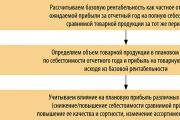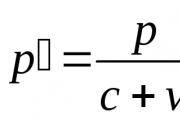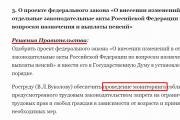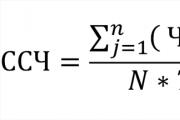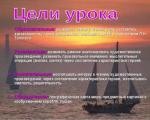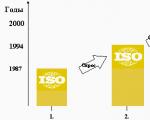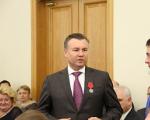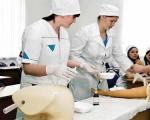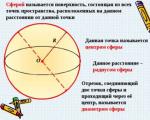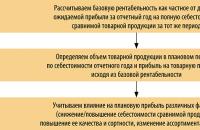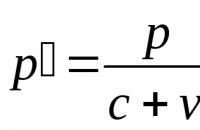(as amended by Federal Law No. 90-FZ of June 30, 2006)
(see text in the previous edition)
(part three introduced by Federal Law dated August 22, 2004 N 122-FZ)
(part four introduced by Federal Law dated 06/07/2013 N 125-FZ)
(Part five introduced by Federal Law dated 06/07/2013 N 125-FZ)
(part six introduced by Federal Law dated 06/07/2013 N 125-FZ)
(Part seven introduced by Federal Law dated 06/07/2013 N 125-FZ)
For medical workers, a reduced working time of no more than 39 hours per week is established. Depending on the position and (or) specialty, the working hours of medical workers are determined by the Government Russian Federation.
Medical workers of healthcare organizations living and working in rural areas and in urban-type settlements, the duration of part-time work may be increased by decision of the Government of the Russian Federation, adopted taking into account the opinion of the relevant all-Russian trade union and the All-Russian Association of Employers.
In order to implement the program of state guarantees of free provision to citizens medical care in an emergency or emergency form, medical workers of medical organizations, with their consent, may be assigned to duty at home.
Home duty - stay of a medical worker medical organization at home while awaiting a call to work (to provide emergency or emergency medical care).
When taking into account the time actually worked by a medical worker of a medical organization, the time spent on duty at home is taken into account in the amount of one-half of an hour of working time for each hour of duty at home. The total working time of a medical worker of a medical organization, taking into account the time on duty at home, should not exceed the standard working time of a medical worker of a medical organization for the corresponding period.
Features of the working time regime and recording of working time when medical workers of medical organizations perform duty at home are established by the federal executive body exercising the functions of developing public policy and legal regulation in the field of health care.
Comments to Art. 350
You can also receive comments on Art. 350 Labor Code of the Russian Federation. The site's lawyers, specializing in specific areas of codes and laws, will provide comprehensive commentary on any issues.
About the section “Labor Code (Labor Code of the Russian Federation)”
The section is dedicated to the codes and laws of the Russian Federation. The Contract-Yurist.Ru database is checked and updated daily. Here you can find the latest valid editions Labor Code. You can receive comments on the articles of the code by clicking the “Ask a question” button. For any article of the code, you will be given the most detailed personal commentary, taking into account your situation. Live online discussion legal norms are best way understand the intricacies of Russian legislation.
The site provides a convenient search for articles, for example “Art. 350 of the Labor Code of the Russian Federation", you will immediately be provided with an article of the legislative document, judicial practice and comments to it.
Copying materials from the website “Contract-Lawyer. Ru" is possible only with the permission of the site administration and with an indexed link to the source.
“Free legal consultations” mean answers to standard questions, background information on articles of codes and laws
labor code leave for medical workers
Chapter 19. HOLIDAYS
Annual basic paid leave of more than 28 calendar days(extended main leave) is provided to employees in accordance with this Code and other federal laws.
Annual additional paid leave is provided to employees engaged in work with harmful and (or) dangerous working conditions, employees with a special nature of work, employees with irregular working hours, employees working in the Far North and equivalent areas, as well as in other areas. cases provided for by this Code and other federal laws.
Additional leave for medical workers and shortened working hours
How is it correct, taking into account changing labor legislation, to provide medical workers with additional leave and a reduced working week? Increasingly, heads of medical organizations and personnel department employees are asking a similar question in connection with the certification of workplaces for working conditions, and since 2014, the assessment of labor conditions. Are Lists of medical workers valid and how to apply them?
In case of provision at workplaces safe conditions labor confirmed by results special assessment working conditions or the conclusion of a state examination of working conditions, guarantees and compensation for employees are not established (Article 219 of the Labor Code of the Russian Federation).
Employment contract with a medical worker
1.1. The employee undertakes to provide qualified medical care in his specialty, using modern methods prevention, diagnosis, treatment and rehabilitation, permitted for use in medical practice, subject to the internal labor regulations at ____________________________________________________________ (place of work), and the Employer undertakes to provide him with the necessary working conditions provided for by labor legislation, as well as timely and full payment wages.
Labor Code (LC RF), N 197-FZ dated
For medical workers, a reduced working time of no more than 39 hours per week is established. Depending on the position and (or) specialty, the working hours of medical workers are determined by the Government of the Russian Federation.
For medical workers of healthcare organizations living and working in rural areas and urban settlements, the duration of part-time work may be increased by decision of the Government of the Russian Federation, adopted taking into account the opinion of the relevant all-Russian trade union and all-Russian association of employers.
Read also: How is study leave paid?
Labor code for teenagers.
Article 63 of the Labor Code of the Russian Federation establishes that the conclusion employment contract allowed with persons over 16 years of age. A child has the right to work even earlier, from the age of 15, if he has received general education; continues to master the basic general education program of general education not on a full-time basis; left in accordance with federal law educational institution. At the same time, the work should be easy and not cause harm to the health of the teenager.
Labor Code leave for medical workers
“Russian Accountant” is a portal for accountants, tax specialists, personnel officers, lawyers, and entrepreneurs. Authoritative experts constantly publish relevant materials on the following topics: accounting, taxation, VAT, personal income tax, insurance premiums, personnel records management, accrual of vacation and sick leave, compensation for unused vacation, tariff schedule, hiring and dismissal of workers, registration legal entities and their liquidation, simplified taxation (USN), imputation (UTII), wages and hundreds of others.
Labor Code work on vacation
Visitors legal advice asked 302 questions on the topic “Labor Code, working on vacation.” On average, the answer to a question appears within 15 minutes, and to a question we guarantee at least two answers that will begin to arrive within 5 minutes!
According to the labor code. I’m currently on vacation, my employer has assigned me the next vacation in February for 28 days, I don’t need it at this time, can I refuse to transfer it to another time, or take half of 02.
Labor Code of the Russian Federation
The Labor Code of the Russian Federation is the main legislative document regulating the entire range of issues in Russia labor law. It has been in force since February 1, 2002 and is officially Federal Law No. 197-FZ of December 30, 2001. The Labor Code is a very voluminous document - it consists of 6 parts, which in turn are divided into 14 sections and 442 articles. Parts and sections of the Labor Code of the Russian Federation, like all other codes, are numbered in Latin numerals, articles - in Arabic.
Labor Code: wedding
Wedding leave days according to labor law are provided on the basis of Article 128 of the Labor Code of the Russian Federation, according to which the employer must provide the employee with non-sustainable leave. wages lasting up to five calendar days according to a statement written by the employee. The application is the basis for this type of vacation, and the rights to receive this type of vacation are quite clearly stated in the legislation.
Labor relations in medicine.
The health care system is a complex, multi-level structure that involves a huge army of medical workers protecting our health. The work of these people cannot be called simple and ordinary; accordingly, labor relations within the system are complex and multifaceted. Labor lawyer Pavel Viktorovich Andreev talks about some of their features.
— It’s interesting that the Labor Code has only one article 350, which regulates the work of medical workers from the ward nurse to the chief physician of the hospital.
Additional paid leave has been established for certain categories of health workers
Decree of the Government of the Russian Federation dated June 6, 2013 No. 482 determined the amount of annual additional paid leave for certain categories of medical workers for working in harmful or dangerous working conditions.
This Resolution applies to workers directly providing anti-tuberculosis care, psychiatric care, diagnosis and treatment of HIV-infected people and working with materials containing the human immunodeficiency virus.
Medical Law Forum
In accordance with Article 282 of the Labor Code of the Russian Federation (Collection of Legislation of the Russian Federation, 2002, N 1, Part I, Art. 3) and Decree of the Government of the Russian Federation of April 4, 2003 N 197 “On the peculiarities of part-time work in teaching, medical , pharmaceutical workers and cultural workers" (Collected Legislation of the Russian Federation, 2003, No. 15, Art.
Article 350. Some features of regulation of the labor of medical workers
For medical workers, a reduced working time of no more than 39 hours per week is established. Depending on the position and (or) specialty, the working hours of medical workers are determined by the Government of the Russian Federation.
For medical workers of healthcare organizations living and working in rural areas and urban settlements, the duration of part-time work may be increased by decision of the Government of the Russian Federation, adopted taking into account the opinion of the relevant all-Russian trade union and all-Russian association of employers.
Individual categories Medical workers may be provided with additional annual paid leave. The duration of additional leave is established by the Government of the Russian Federation.
In order to implement the program of state guarantees of free provision of emergency or emergency medical care to citizens, medical workers of medical organizations, with their consent, can be assigned to duty at home.
Duty at home is the stay of a medical worker of a medical organization at home while waiting to be called to work (to provide medical care in an emergency or urgent manner).
When taking into account the time actually worked by a medical worker of a medical organization, the time spent on duty at home is taken into account in the amount of one-half of an hour of working time for each hour of duty at home. The total working time of a medical worker of a medical organization, taking into account the time on duty at home, should not exceed the standard working time of a medical worker of a medical organization for the corresponding period.
Features of the working time regime and recording of working time when medical workers of medical organizations perform duty at home are established by the federal executive body that carries out the functions of developing state policy and legal regulation in the field of healthcare.
Commentary on Article 350 of the Labor Code of the Russian Federation
1. Medical workers are called upon to ensure the timely provision of necessary medical care in order to preserve human life and health. In this regard, this category of workers cannot be subject to general standards, in particular, for the majority of such workers, irregular working hours are established, they can also be involved in overtime work, working on holidays and weekends, etc. Of fundamental importance in this case is the determination of the characteristics of the work activities of medical workers, as well as the guarantees that logically follow from them to these individuals.
Part 1 of the commented article is of particular interest when studying the characteristics of the labor activity of medical workers, since, on the one hand, it establishes the total working hours of workers, on the other hand, it refers the solution to this issue within the competence of the Government of the Russian Federation. In this regard, the fact that reduced working hours are applied to this category of workers is of fundamental importance, i.e. reduction of the general established norm, subject to maintaining the general level of wages.
The use of reduced working hours is due to the specifics and intensity of the work activity of medical workers. The maximum weekly working hours for this category of workers cannot exceed 39 hours.
Decree of the Government of the Russian Federation of February 14, 2003 N 101 “On the working hours of medical workers depending on their position and (or) specialty” details the general restrictions in relation to individual positions and specialties. In particular, working hours can vary from 24 to 36 hours per week, depending on the above criteria. The minimum working time - 24 hours per week - is established for medical workers who directly carry out gamma therapy and experimental gamma irradiation with gamma drugs in radiomanipulation rooms and laboratories. The maximum duration - 36 hours - is established for medical personnel of infectious diseases hospitals, leper colonies, etc.
Read also: Deduction according to writ of execution from salary posting
An analysis of this resolution of the Government of the Russian Federation indicates that the main criterion for determining the duration of working hours takes into account not only the specialty, but also the level of potential harmful effects on the employee’s body. The position of the employee is of less importance in determining the duration of working hours, but it is also taken into account when resolving this issue.
2. Current legislation does not prohibit an employee from carrying out labor activity part-time during free time from main work. However, allowing for this possibility, the Labor Code of the Russian Federation clearly regulates the duration of part-time work - no more than 4 hours a day and no more than the established monthly norm labor for a given employee.
The provisions of Part 2 of the commented article directly indicate the possibility of change general provisions in relation to a special category of workers - medical workers who work and live in rural areas. Moreover, the law in this case does not indicate how the total duration of part-time work can be changed: towards its increase or decrease. By forming a reference legal norm, the law places within the competence of the Government of the Russian Federation not only the establishment of such a norm, but also the regulation of the procedure for its determination.
Particular attention should be paid to the fact that decision-making in this case requires taking into account the opinions of the all-Russian trade union and the all-Russian association of employers, i.e. representatives of both sides of the labor relationship in order to develop the most optimal duration, which will allow employers to achieve the goals of attracting a part-time worker to work, and employees to carry out extra work without significant damage to health with a reasonable combination of work and rest time.
The duration of part-time working hours for medical workers working and living in rural areas is established by Decree of the Government of the Russian Federation of November 12, 2002 N 813 “On the duration of part-time work in health care organizations for medical workers living and working in rural areas and in urban-type settlements " In relation to this category of employees, the duration of working hours when working part-time cannot exceed the general standards of labor activity at the main place of work, i.e. no more than 8 hours a day and 39 hours a week. Thus, the highest federal executive body actually allowed rural medical workers to work at no more than two pay rates. This decision may be due, in particular, to the lack of their own medical facility in some rural settlements, as well as the broad qualifications of such medical workers who, due to the lack of other specialists, provide not only first aid, but also other types of assistance in emergency situations.
At the same time, it should be noted that saving a person’s life and preserving his health cannot be considered as a basis for violating the similar rights of the medical worker himself. In this regard, the authorized state authorities are called upon only to establish acceptable limits, and the immediate scope of work is determined by each medical worker independently.
3. As an additional guarantee, medical workers may be granted additional leave. However, the law connects the fact of implementation of this provision with the assignment of the employee to one or another category of persons for whom such a possibility is established by regulation, and the duration of such leave is determined by the Government of the Russian Federation.
First of all, attention should be focused on the fact that since Soviet times the traditional right to additional leave for medical workers employed in work with harmful and (or) dangerous working conditions has remained in effect. The list of such work and conditions is determined by Decree of the Government of the Russian Federation of June 6, 2013 N 482 “On the duration of annual additional paid leave for work with harmful and (or) dangerous working conditions provided to certain categories of workers.”
In accordance with this resolution, the right to additional leave belongs to medical workers those involved in the provision of psychiatric care, directly involved in the provision of anti-tuberculosis care, diagnosing and treating HIV-infected people, as well as persons whose work is related to materials containing the human immunodeficiency virus. The duration of additional leave for them is set in the range from 14 to 35 days.
Decree of the Government of the Russian Federation of December 30, 1998 N 1588 “On the establishment of general practitioners (family doctors) and nurses as general practitioners ( family doctors) annual additional paid 3-day leave for continuous work in these positions”, the right to additional paid leave for medical workers has been significantly expanded by granting such a right to other categories of workers, in particular, general practitioners and nurses of such doctors. General practitioners and nurses working with them are entitled to an additional three-day paid annual leave for continuous work in these positions for more than 3 years.
Additional leave may be granted in accordance with special regulatory requirements to other medical workers, taking into account the characteristics of their work activities.
4. In accordance with the Federal Law of June 7, 2013 N 125-FZ “On Amendments to Article 350 of the Labor Code of the Russian Federation,” the commented article was supplemented with provisions regulating the specifics of duty at home.
According to part 5 of the commented article, duty at home is the stay of a medical worker of a medical organization at home awaiting a call to work (to provide medical care in an emergency or emergency form).
Home duty can only be established with the consent of medical workers.
Order of the Ministry of Health of Russia dated April 2, 2014 N 148n approved the Regulations on the peculiarities of the working time regime and recording of working time when medical workers of medical organizations perform duty at home. In particular, this Regulation provides that in the case of duty at home, a summarized recording of working time is established. The start and end times of duty at home are determined by the work schedule approved by the employer, taking into account the opinion of the representative body of employees.
The employer is responsible for keeping records of:
— the time the employee spends at home waiting for a call to work;
— time spent on providing medical care;
— the travel time of a medical worker from home to the place of work (place of emergency medical care) and back if he is called to work while on duty at home.
Consultations and comments from lawyers on Article 350 of the Labor Code of the Russian Federation
If you still have questions regarding Article 350 of the Labor Code of the Russian Federation and you want to be sure of the relevance of the information provided, you can consult the lawyers of our website.
You can ask a question by phone or on the website. Initial consultations are held free of charge from 9:00 to 21:00 daily Moscow time. Questions received between 21:00 and 9:00 will be processed the next day.
Knowledge of the Labor Code norms for a medical worker is a vital necessity
In labor relations, the norms of medical law are secondary
The legal status of a medical worker follows from the legal definition of a person engaged in medical activities on a professional basis, that is, an employee whose rights and responsibilities are regulated by labor legislation.
Labor Code, N 197-FZ | Art. 350 Labor Code of the Russian Federation
Article 350 of the Labor Code of the Russian Federation. Some features of labor regulation for medical workers (current version)
For medical workers, a reduced working time of no more than 39 hours per week is established. Depending on the position and (or) specialty, the working hours of medical workers are determined by the Government of the Russian Federation.
For medical workers of healthcare organizations living and working in rural areas and urban settlements, the duration of part-time work may be increased by decision of the Government of the Russian Federation, adopted taking into account the opinion of the relevant all-Russian trade union and all-Russian association of employers.
In order to implement the program of state guarantees of free provision of emergency or emergency medical care to citizens, medical workers of medical organizations, with their consent, can be assigned to duty at home.
Duty at home - the stay of a medical worker of a medical organization at home while waiting to be called to work (to provide medical care in an emergency or emergency form).
When taking into account the time actually worked by a medical worker of a medical organization, the time spent on duty at home is taken into account in the amount of one-half of an hour of working time for each hour of duty at home. The total working time of a medical worker of a medical organization, taking into account the time on duty at home, should not exceed the standard working time of a medical worker of a medical organization for the corresponding period.
Features of the working time regime and recording of working time when medical workers of medical organizations perform duty at home are established by the federal executive body that carries out the functions of developing state policy and legal regulation in the field of healthcare.
Positions of heads, deputy heads of medical organizations subordinate to federal executive authorities, executive authorities of constituent entities of the Russian Federation or bodies local government, heads of branches of medical organizations subordinate to federal executive authorities are replaced by persons under the age of sixty-five years, regardless of the validity period of employment contracts. Persons holding these positions and who have reached the age of sixty-five years are transferred, with their written consent, to other positions corresponding to their qualifications.
The founder has the right to extend the term of office of an employee holding the position of head of a medical organization subordinate to a federal executive body, an executive body of a constituent entity of the Russian Federation or a local government body until he reaches the age of seventy years upon proposal general meeting(conferences) of employees of the specified medical organization.
The head of a medical organization subordinate to a federal executive body, an executive body of a constituent entity of the Russian Federation or a local government body has the right to extend the tenure of an employee holding the position of deputy head of the specified medical organization or the position of head of a branch of a medical organization subordinate to the federal executive body, until he reaches the age of seventy years in the manner established by the charter of the medical organization.
In addition to the grounds provided for by this Code and other federal laws, the basis for termination of an employment contract with the head, deputy head of a medical organization subordinate to a federal executive body, an executive body of a constituent entity of the Russian Federation or a local government body, the head of a branch of a medical organization subordinate to a federal executive body , is the achievement of the age limit for filling the corresponding position in accordance with this article.
Document URL [copy]
Commentary to Art. 350 Labor Code of the Russian Federation
1. The work of medical workers is intense and requires significant physical and nervous stress, which is due to the high responsibility for human life and health. Therefore in labor legislation For this category of workers, a reduction in working hours is provided. By general rule The working hours of all medical workers without exception should not exceed 39 hours per week.
2. Standards for reducing working hours for certain categories of healthcare workers are established by some special federal laws. Thus, certain categories of medical workers engaged in work with chemical weapons are provided with a 24-hour and 36-hour working week (depending on the group of work) in accordance with Art. 5 of the Law on social protection citizens working with chemical weapons. List of positions (professions) of employees of healthcare institutions engaged in work with chemical weapons (CW), provided for in Part 2 (first group of work) and Part 3 (second group of work) Art. 1 of the Law on Social Protection of Citizens Working with Chemical Weapons, approved by Order No. 386 of the Russian Ministry of Health and the Russian Munitions Agency No. 714 dated December 19, 2002. The working hours of medical workers directly involved in the provision of anti-tuberculosis care are being reduced in accordance with the Law on preventing the spread of tuberculosis, as well as healthcare workers exposed to the risk of contracting human immunodeficiency virus while performing their duties official duties, according to the HIV Prevention Act.
3. The specific duration of reduced working time for medical workers is differentiated depending on the type and specificity of the work, the degree of harmfulness and danger of the conditions in which it is carried out, and is determined by Decree of the Government of the Russian Federation of February 14, 2003 N 101 “On the duration of working time for medical workers, depending on depending on the position and (or) specialty they hold”, and it indicates only those employees whose working hours are less than 39 hours per week due to work in unfavorable conditions.
In accordance with the Decree of the Government of the Russian Federation, a 36-hour working week is established, in particular, for doctors, incl. doctors - heads of structural units (except for a statistician), average (except for a medical archive registrar, medical statistics) and junior medical staff of infectious diseases hospitals, departments, wards, offices, skin and venereal disease clinics, departments, offices carrying out work to provide medical care and serve patients;
Doctors, incl. heads of the structural unit (except for the statistician), middle and junior medical staff of leper colonies;
Certain categories of medical workers in medical institutions (hospitals, centers, departments, wards) for the prevention and control of AIDS and infectious diseases; doctors, incl. heads of the department, office (except for the statistician), middle (except for the medical archive registrar, medical statistician) and junior medical staff of psychiatric (psychoneurological), neurosurgical, drug treatment and preventive organizations, institutions, departments, wards and offices (including . children), carrying out work directly to provide medical care and care for patients;
Senior doctors of emergency medical care stations (departments), ambulance and emergency medical care stations (departments) in the cities of Moscow and St. Petersburg; paramedics or nurses to receive calls and transfer them to the field team of an emergency medical care station (department), emergency and emergency medical care station (department) in the cities of Moscow and St. Petersburg; psychiatrists; middle and junior medical personnel involved in the provision of medical care and evacuation of citizens suffering from mental illness, as well as middle and junior medical personnel performing work directly on the evacuation of infectious patients from emergency medical care stations (departments), ambulance stations (departments) emergency medical care, departments of on-site emergency and consultative medical care of regional, regional and republican hospitals; certain categories of medical workers of state sanitary and epidemiological service organizations, incl. epidemiologists, virologists, bacteriologists, paramedical and junior medical personnel working directly with live cultures (infected animals), as well as doctors, paramedical and junior medical personnel working in the department of especially dangerous infections, and some others categories of medical workers of certain organizations and healthcare institutions.
A 33-hour work week is provided for: for doctors of medical and preventive organizations, institutions (polyclinics, outpatient clinics, dispensaries, medical centers, stations, departments, offices) conducting exclusively outpatient visits to patients; doctors and nursing staff of physiotherapeutic treatment and preventive organizations, institutions, departments, offices working full time on medical generators of ultra-short wave frequency "UHF" with a power of over 200 W; dentists, orthopedic dentists, orthodontists, pediatric dentists, dental therapists, dental doctors, dental technicians (except for a dental surgeon, maxillofacial surgeon), dental treatment -preventive organizations, institutions (departments, offices).
At the same time, the courts indicated that missing the ten-day period established by paragraph 3 of Article 350 of the Labor Code of the Russian Federation is not an independent basis for invalidating the claim. There are no violations of the requirements of procedural legislation entailing the unconditional reversal of judicial acts...
Decision of the Supreme Court: Determination N ВС-8318/09, Collegium for Administrative Legal Relations, supervision Having checked the contested judicial acts, the panel of judges came to the conclusion that the arguments of the parties were examined by the courts with due completeness. The appealed judicial acts are motivated by the fact that the period established by paragraph 3 of Art. 350 of the Labor Code of the Russian Federation, is not preemptive and violation by the customs authority of the ten-day deadline for sending a demand does not entail its invalidation. There are no violations of the requirements of procedural legislation entailing the unconditional reversal of judicial acts...
+More... For medical workers, a reduced working time of no more than 39 hours per week is established. Depending on the position and (or) specialty, the working hours of medical workers are determined by the Government of the Russian Federation.
For medical workers of healthcare organizations living and working in rural areas and urban settlements, the duration of part-time work may be increased by decision of the Government of the Russian Federation, adopted taking into account the opinion of the relevant all-Russian trade union and all-Russian association of employers.
In order to implement the program of state guarantees of free provision of emergency or emergency medical care to citizens, medical workers of medical organizations, with their consent, can be assigned to duty at home.
Duty at home - the stay of a medical worker of a medical organization at home while waiting to be called to work (to provide medical care in an emergency or emergency form).
When taking into account the time actually worked by a medical worker of a medical organization, the time spent on duty at home is taken into account in the amount of one-half of an hour of working time for each hour of duty at home. The total working time of a medical worker of a medical organization, taking into account the time on duty at home, should not exceed the standard working time of a medical worker of a medical organization for the corresponding period.
Features of the working time regime and recording of working time when medical workers of medical organizations perform duty at home are established by the federal executive body that carries out the functions of developing state policy and legal regulation in the field of healthcare.
The positions of managers, deputy heads of medical organizations subordinate to federal executive bodies, executive bodies of constituent entities of the Russian Federation or local governments, heads of branches of medical organizations subordinate to federal executive bodies are filled by persons under the age of sixty-five years, regardless of the validity period of employment contracts. Persons holding these positions and who have reached the age of sixty-five years are transferred, with their written consent, to other positions corresponding to their qualifications.
The founder has the right to extend the tenure of an employee holding the position of head of a medical organization subordinate to a federal executive body, an executive body of a constituent entity of the Russian Federation or a local government body until he reaches the age of seventy years upon the proposal of a general meeting (conference) of employees of the specified medical organization .
The head of a medical organization subordinate to a federal executive body, an executive body of a constituent entity of the Russian Federation or a local government body has the right to extend the tenure of an employee holding the position of deputy head of the specified medical organization or the position of head of a branch of a medical organization subordinate to the federal executive body, until he reaches the age of seventy years in the manner established by the charter of the medical organization.
In addition to the grounds provided for by this Code and other federal laws, the basis for termination of an employment contract with the head, deputy head of a medical organization subordinate to a federal executive body, an executive body of a constituent entity of the Russian Federation or a local government body, the head of a branch of a medical organization subordinate to a federal executive body , is the achievement of the age limit for filling the corresponding position in accordance with this article.
For medical workers, a reduced working time of no more than 39 hours per week is established. Depending on the position and (or) specialty, the working hours of medical workers are determined by the Government of the Russian Federation.
For medical workers of healthcare organizations living and working in rural areas and urban settlements, the duration of part-time work may be increased by decision of the Government of the Russian Federation, adopted taking into account the opinion of the relevant all-Russian trade union and all-Russian association of employers.
Certain categories of medical workers may be granted additional annual paid leave. The duration of additional leave is established by the Government of the Russian Federation.
In order to implement the program of state guarantees of free provision of emergency or emergency medical care to citizens, medical workers of medical organizations, with their consent, can be assigned to duty at home.
Duty at home - the stay of a medical worker of a medical organization at home while waiting to be called to work (to provide medical care in an emergency or emergency form).
When taking into account the time actually worked by a medical worker of a medical organization, the time spent on duty at home is taken into account in the amount of one-half of an hour of working time for each hour of duty at home. The total working time of a medical worker of a medical organization, taking into account the time on duty at home, should not exceed the standard working time of a medical worker of a medical organization for the corresponding period.
Features of the working time regime and recording of working time when medical workers of medical organizations perform duty at home are established by the federal executive body that carries out the functions of developing state policy and legal regulation in the field of healthcare.
The positions of managers, deputy heads of medical organizations subordinate to federal executive bodies, executive bodies of constituent entities of the Russian Federation or local governments, heads of branches of medical organizations subordinate to federal executive bodies are filled by persons under the age of sixty-five years, regardless of the validity period of employment contracts. Persons holding these positions and who have reached the age of sixty-five years are transferred, with their written consent, to other positions corresponding to their qualifications.
The founder has the right to extend the tenure of an employee holding the position of head of a medical organization subordinate to a federal executive body, an executive body of a constituent entity of the Russian Federation or a local government body until he reaches the age of seventy years upon the proposal of a general meeting (conference) of employees of the specified medical organization .
The head of a medical organization subordinate to a federal executive body, an executive body of a constituent entity of the Russian Federation or a local government body has the right to extend the tenure of an employee holding the position of deputy head of the specified medical organization or the position of head of a branch of a medical organization subordinate to the federal executive body, until he reaches the age of seventy years in the manner established by the charter of the medical organization.
In addition to the grounds provided for by this Code and other federal laws, the basis for termination of an employment contract with the head, deputy head of a medical organization subordinate to a federal executive body, an executive body of a constituent entity of the Russian Federation or a local government body, the head of a branch of a medical organization subordinate to a federal executive body , is the achievement of the age limit for filling the corresponding position in accordance with this article.
1. The work of medical workers is intense and requires significant physical and nervous stress, which is due to the high responsibility for human life and health. Therefore, labor legislation provides for a reduction in working hours for this category of workers. As a general rule, the working hours of all medical workers without exception should not exceed 39 hours per week.
2. Standards for reducing working hours for certain categories of healthcare workers are established by some special federal laws. Thus, certain categories of medical workers engaged in work with chemical weapons are provided with a 24-hour and 36-hour working week (depending on the group of work) in accordance with Art. 5 of the Law on Social Protection of Citizens Working with Chemical Weapons. List of positions (professions) of employees of healthcare institutions engaged in work with chemical weapons (CW), provided for in part two (the first group of work) and part three (the second group of work) of Article 1 of the Federal Law "On the social protection of citizens employed in work with chemical weapons", approved by Order of December 19, 2002 of the Russian Ministry of Health N 386 and the Russian Ammunition Agency N 714 (BNA RF. 2003. N 9). Working hours are being reduced for health care workers directly involved in providing TB care in accordance with the TB Prevention Act, as well as for health care workers who are exposed to the risk of contracting the human immunodeficiency virus while performing their duties in accordance with the HIV Prevention Act.
3. The specific duration of reduced working hours for medical workers is differentiated depending on the type and specificity of the work, the degree of harmfulness and danger of the conditions in which it is carried out, and is determined by Decree of the Government of the Russian Federation of February 14, 2003 N 101 “On the duration of working hours for medical workers depending on the position they occupy and (or) specialty" (SZ RF. 2003. N 8. Art. 757), and it indicates only those employees whose working hours are less than 39 hours per week due to work in unfavorable conditions conditions.
In accordance with the Decree of the Government of the Russian Federation, a 36-hour working week is established, in particular, for doctors, incl. doctors - heads of structural units (except for a statistician), mid-level (except for a medical archive registrar, medical statistician) and junior medical staff of infectious diseases hospitals, departments, wards, offices, dermatovenerological dispensaries, departments, offices providing medical care and patient care;
doctors, incl. heads of the structural unit (except for the statistician), middle and junior medical staff of leper colonies;
certain categories of medical workers in medical institutions (hospitals, centers, departments, wards) for the prevention and control of AIDS and infectious diseases; doctors, incl. heads of the department, office (except for the statistician), middle (except for the medical archive registrar, medical statistician) and junior medical staff of psychiatric (psychoneurological), neurosurgical, drug treatment and preventive organizations, institutions, departments, wards and offices (including . children), carrying out work directly to provide medical care and care for patients;
senior doctors of emergency medical care stations (departments), ambulance and emergency medical care stations (departments) in Moscow and St. Petersburg; paramedics or nurses for receiving calls and transferring them to the visiting team of the emergency medical care station (department), ambulance and emergency medical care station (department) in Moscow and St. Petersburg, psychiatrists, paramedical and junior medical personnel employed in the work of providing medical care and evacuation of citizens suffering from mental illness, as well as paramedical and junior medical personnel performing work directly on the evacuation of infectious patients from emergency medical care stations (departments), ambulance and emergency medical care stations (departments), mobile emergency departments and advisory medical care of regional, regional and republican hospitals; certain categories of medical workers of state sanitary and epidemiological service organizations, incl. epidemiologists, virologists, bacteriologists, paramedical and junior medical personnel working directly with live cultures (infected animals), as well as doctors, paramedical and junior medical personnel working in the department of especially dangerous infections, and some others categories of medical workers of certain organizations and healthcare institutions.
A 33-hour work week is provided for doctors of medical and preventive organizations, institutions (polyclinics, outpatient clinics, dispensaries, medical centers, stations, departments, offices) conducting exclusively outpatient visits to patients, doctors and nursing staff of physiotherapeutic treatment and preventive organizations, institutions, departments, offices working full time on medical generators of ultra-short wave frequency "UHF" with a power of over 200 W, dentists, orthopedic dentists, orthodontists, pediatric dentists, dental therapists, dentists , dental technicians (except for a dental surgeon, a maxillofacial surgeon) of dental treatment and preventive organizations, institutions (departments, offices).
A 30-hour work week is established for doctors, incl. doctors - heads of the institution (department, office, laboratory), middle and junior medical staff of tuberculosis (anti-tuberculosis) healthcare organizations and their structural divisions. The list of positions, the occupation of which is associated with the danger of infection with Mycobacterium tuberculosis, was approved by Order of the Ministry of Health of Russia, the Ministry of Defense of Russia, the Ministry of Internal Affairs of Russia, the Ministry of Justice of Russia, the Ministry of Education of Russia, the Ministry of Agriculture of Russia, the Federal Border Guard Service of Russia dated May 30, 2003 N 225/194/363/126/2330 /777/292 (BNA RF. 2003. N 37).
In addition, a 30-hour work week is provided for doctors, incl. doctors - heads of departments, laboratories, for middle and junior medical personnel of pathological and anatomical departments of bureaus (institutes), departments, laboratories, autopsy rooms, morgues, carrying out work directly related to corpses and cadaveric material, for doctors and nursing staff whose work directly related to X-ray diagnostics, fluorography, for nurses in X-ray, fluorographic rooms and installations who perform at least half of the working day work directly related to assisting the doctor in carrying out work on X-ray diagnostics, fluorography, on an X-ray therapy installation with visual inspection and for some other categories of medical workers of certain organizations and healthcare institutions.
A 24-hour work week is provided for by the specified Decree of the Government of the Russian Federation for medical workers who directly carry out gamma therapy and experimental gamma irradiation with gamma drugs in radiomanipulation rooms and laboratories.
4. A shortened working day for certain groups of healthcare workers who carry out their labor activities in unfavorable working conditions is also provided for in the List of industries, workshops, professions and positions with harmful conditions labor, work in which gives the right to additional leave and a shortened working day, approved by Resolution of the State Committee of Labor of the USSR and the Presidium of the All-Union Central Council of Trade Unions of October 25, 1974 N 298/P-22, currently in force in accordance with the rules provided for in Art. 423 TK. According to clause 9 of the Instructions for use of the List, approved. By Decree of the State Committee for Labor of the USSR and the Presidium of the All-Union Central Council of Trade Unions of November 21, 1975 N 273/P-20 and valid in the part that does not contradict the Labor Code, working hours is reduced on those days when workers are actually employed in hazardous working conditions for at least half of the working day established by the List for of this production, workshop, profession or position duration. It should be especially emphasized that most of the categories of medical workers indicated in the List are included in the previously discussed Decree of the Government of the Russian Federation of February 14, 2003 N 101.
5. 6-hour workday (36 hours per week) and extended hours annual leave(36 working days) is established for nurses involved in raising children under 3 years of age, in accordance with Resolution of the Council of Ministers of the USSR of April 12, 1984 N 317 “On further improvement of public preschool education and preparing children for school" (SP USSR. 1984. N 18. Art. 103).
6. Features of part-time work for medical workers are defined in Resolution of the Ministry of Labor of Russia dated June 30, 2003 N 41 “On the features of part-time work for teaching, medical, pharmaceutical and cultural workers” (BNA RF. 2003. N 51) in pursuance of the relevant order Government of the Russian Federation (Resolution of the Government of the Russian Federation of April 4, 2003 N 197 “On the peculiarities of part-time work for teaching, medical, pharmaceutical and cultural workers” // SZ RF. 2003. N 15. Art. 1368).
The duration of part-time work for medical and pharmaceutical workers during a month is established by agreement between the employee and the employer and for each employment contract cannot exceed half of the monthly working time rate, calculated from the established duration of the working week. Thus, with a 39-hour work week, the duration of part-time work for health care workers cannot be more than 19.5 hours per week, with a 36-hour work week - 18 hours per week, and with a 33-hour work week - 16.5 hours per week.
For medical and pharmaceutical workers whose half the monthly working time for their main job is less than 16 hours per week (i.e. for workers who are provided with a 30-hour and 24-hour work week), the duration of part-time work cannot exceed 16 hours of work per week.
For doctors and paramedical personnel of cities, districts and other municipalities, where there is a shortage, the duration of part-time work cannot exceed the monthly standard of working time, calculated from the established length of the working week. At the same time, the duration of part-time work for specific positions in institutions and other organizations of federal subordination is established in the manner determined by federal executive authorities, and in institutions and other organizations under the jurisdiction of constituent entities of the Russian Federation or local governments - in the manner determined by state bodies authorities of the constituent entities of the Russian Federation or local governments.
For junior medical and pharmaceutical personnel, the duration of part-time work cannot exceed the monthly standard working time, calculated from the established length of the working week.
The said Resolution also defines types of work that for medical workers are not considered part-time and do not require the conclusion (registration) of an employment contract. These include:
- a) literary work, incl. work on editing, translation and reviewing individual works, scientific and other creative activities without classes full-time position;
- b) carrying out medical, technical, accounting and other examinations with a one-time payment;
- c) teaching work on conditions hourly pay no more than 300 hours per year;
- d) consulting by highly qualified specialists in institutions and other organizations in an amount of no more than 300 hours per year;
- e) supervision of graduate students and doctoral students by employees who are not on the staff of the institution (organization), as well as the head of the department, management of the faculty of an educational institution with additional payment by agreement between the employee and the employer;
- f) teaching work in the same institution of primary or secondary vocational education;
- g) work without holding a full-time position in the same institution or another organization, work under management industrial training and practice of students and other students, duty of medical workers in excess of the monthly working hours according to the schedule, etc.
Carrying out the work specified in subparagraphs "b" - "g" is permitted during regular working hours with the consent of the employer.
The pedagogical work of highly qualified specialists on a part-time basis, with the consent of the employer, can be carried out in educational institutions advanced training and retraining of personnel during regular working hours while maintaining wages at the main place of work.
7. In healthcare organizations and institutions located in rural areas, the problem of shortage of medical personnel is most acute, which necessitates the establishment of special rules regarding part-time work. The duration of part-time work in healthcare organizations for medical workers living and working in rural areas and urban settlements should not exceed 8 hours a day and 39 hours a week (in accordance with Decree of the Government of the Russian Federation of November 12, 2002 N 813 ( SZ RF. 2002. N 46. Art. 4595)).
8. Additional leaves are provided to healthcare workers employed in jobs with harmful and (or) dangerous working conditions. Lists of industries, jobs, professions and positions in which work gives the right to additional paid leave for work under harmful and (or) dangerous working conditions, as well as the minimum duration of these leaves and the conditions for their provision must be approved by the Government of the Russian Federation, taking into account the opinion of the Russian Tripartite Commission on the regulation of social and labor relations, which is provided for in Art. 117 TK. Currently, until the adoption of the relevant lists by virtue of Art. 423 of the Labor Code is valid List of industries, workshops, professions and positions with hazardous working conditions, work in which gives the right to additional leave and a shortened working day, approved. Resolution of the State Committee for Labor of the USSR and the All-Russian Central Council of Trade Unions of October 25, 1974 N 298/P-22. The list of categories of healthcare workers entitled to additional leave in connection with work in working conditions deviating from normal ones is included in a special section of the List - section XL “Healthcare”. In addition, certain groups of physicians are listed in section XLI "Working with radioactive substances and sources of ionizing radiation" and in section XLIII " General professions all sectors of the national economy."
The duration of additional leave for medical workers specified in the List is differentiated depending on the nature and complexity of the work, the harmfulness of working conditions and the degree of their adverse impact on the employee’s health. Certain groups of healthcare workers enjoy the right to receive additional leave of 6 working days. These include, for example, some employees of physiotherapeutic departments and offices (physiotherapists, junior medical personnel working in electric light therapy rooms, directly involved in working on medical ultra-high frequency (UHF) generators with a power of up to 200 W and VHF), individual employees of dental departments and offices (dentists, dentists-prosthetists, dentists-orthodontists, dentists, dental technicians, foundries, polishers), junior medical staff of dermatovenerological institutions, departments, wards and offices, some categories of doctors of healthcare institutions, education, social security and rest homes (general practitioners not working on site, surgeons, otolaryngologists, ophthalmologists, etc.) and a number of other categories of medical workers.
For most medical workers listed on the List, the duration of additional leave is 12 working days. In particular, additional leave of the specified duration is provided to doctors - local therapists, pediatricians, hospital obstetrician-gynecologists, gynecologists and many other categories of health care workers.
Additional leaves of longer duration are provided for certain groups of doctors. Thus, additional leave of 18 working days is provided to doctors, paramedical and junior medical personnel of physiotherapeutic departments or offices directly involved in working on medical ultra-high frequency (UHF) generators with a power of 200 watts and above, laboratory assistants (including laboratory doctors) for medical treatment - labor dispensaries for compulsory treatment of persons suffering from chronic alcoholism and drug addiction, doctors and paramedical personnel working in pressure chambers and caissons, doctors, paramedics and junior staff venereology hospitals closed type, anesthesiologists-resuscitators, nurse anesthetists, as well as doctors and nursing staff (except for a laboratory assistant, senior nurse and laboratory assistant) departments (groups) of anesthesiology-reanimation and wards for resuscitation and intensive care, workers directly involved in gamma therapy and experimental gamma irradiation in wards serving patients with applied radioactive drugs and with gamma installations, workers directly involved in X-ray diagnostics, fluorography, on a rotational X-ray therapy unit with visual control, and some other categories of physicians.
The right to additional leave of 24 working days in accordance with the List is enjoyed by employees of the clinical yard of the leper colony and anti-leprosy department, department, office, station, doctors (including managers), nursing and junior medical personnel, entomologists, biologists, zoologists, vivars Department of Particularly Dangerous Infections, as well as epidemiologists and bacteriologists (including heads of structural divisions, entomologists, mid-level and junior medical personnel directly involved in working with live cultures (infected animals) of sanitary-preventive institutions and sanitary-epidemiological departments (departments) of hospitals, workers directly involved in gamma therapy and experimental gamma irradiation with gamma drugs in radiomanipulation rooms and laboratories, and some other groups of healthcare workers.
The duration of additional leave, amounting to 30 working days, is provided for by the List for doctors (including doctors - heads of departments, offices), except for a laboratory doctor, nursing staff (except for a laboratory assistant and a medical statistician) and junior medical staff of medical-labor dispensaries for compulsory treatment of persons suffering from chronic alcoholism and drug addiction, doctors, paramedical and junior medical personnel of VTEK for the mentally ill and some other categories of workers.
For healthcare workers who work in especially harmful and especially dangerous working conditions, the List establishes additional leaves of 36 working days. Such leaves are provided to certain categories of workers of anti-plague institutions (stations, detachments, departments, laboratories, institutes) who directly carry out work or come into contact with suspicious or obviously infectious material and in infectious rooms (boxes) for especially dangerous infections, as well as in the production of bacterial preparations ( For example, veterinarians, zoologists, entomologists and some others).
When applying these standards of the List, which provide for the duration of additional leave for healthcare workers in working days, it should be taken into account that by Decree of the Government of the Russian Federation of November 20, 2008 N 870 (SZ RF. 2008. N 48. Art. 5618) for employees engaged in heavy work , work with harmful and (or) dangerous and other special working conditions, based on the results of certification of workplaces, an annual additional paid leave of at least 7 calendar days is established.
9. Additional leave for medical workers in connection with work in unfavorable working conditions is also provided for by certain federal laws. The procedure and conditions for their provision are determined by special regulations legal acts adopted in pursuance of these laws. Yes, Art. 15 of the Law on Prevention of the Spread of Tuberculosis establishes that medical workers directly involved in the provision of anti-tuberculosis care have the right to additional leave for working in hazardous and difficult working conditions. List of positions, the occupation of which is associated with the danger of infection with Mycobacterium tuberculosis, giving the right to additional paid leave, 30 hours working week and additional wages in connection with harmful working conditions, approved by Order of the Ministry of Health of Russia, the Ministry of Defense of Russia, the Ministry of Internal Affairs of Russia, the Ministry of Justice of Russia, the Ministry of Education of Russia, the Ministry of Agriculture of Russia, the Federal Border Guard Service of Russia dated May 30, 2003 N 225/194/363/126/2330/ 777/292. The duration of additional leave for medical workers specified in the List is 14 calendar days.
10. The right to additional leave is granted to psychiatrists, other specialists, medical and other personnel of healthcare institutions involved in the provision of psychiatric care in accordance with Art. 22 of the Law of the Russian Federation of July 2, 1992 N 3185-1 “On psychiatric care and guarantees of the rights of citizens during its provision” (Air Force of the Russian Federation. 1992. N 33. Art. 1913). The specific duration of additional leave is determined by the already mentioned List of industries, workshops, professions and positions with hazardous working conditions, work in which gives the right to additional leave and a shortened working day. Thus, additional leave of 30 working days is provided for doctors (including for doctors - heads of departments or offices), except for statisticians, nursing staff (except for laboratory assistants), junior medical staff (for example, for junior nurses care for the sick (nurses) and some other categories of workers in psychiatric (psychoneurological), neurosurgical treatment and preventive institutions, departments of wards and offices (including children's), as well as homes for the disabled (departments) for mental patients.
In addition, in accordance with the Resolution of the Ministry of Labor of Russia of July 8, 1993 N 133 “On additional leave for work with harmful working conditions of medical and other personnel involved in the provision of psychiatric care” (Bulletin of the Ministry of Labor of Russia. 1993. N 6) additional leave for work with harmful working conditions for a duration of 30 working days is established for psychologists and physiologists who work directly and full-time with mentally ill people, for doctors - managers (with irregular working hours) of psychiatric (psychoneurological), neurosurgical, drug treatment institutions, departments, wards and offices, nursing homes (departments) for mentally ill people and their deputies, as well as chief psychiatrists of health authorities directly involved in the provision of mental health care.
11. In accordance with Art. 22 of the Law on Preventing the Spread of HIV Infection for employees of health care organizations diagnosing and treating HIV-infected people, as well as employees of organizations whose work involves materials containing the human immunodeficiency virus, an annual paid leave of 36 working days is established (including additional annual leave for work in hazardous working conditions), which is provided for by the Decree of the Government of the Russian Federation of April 3, 1996 N 391 “On the procedure for providing benefits to employees exposed to the risk of contracting the human immunodeficiency virus during the performance of their official duties” (SZ RF. 1996. N 15. Art. 1629). It should be taken into account that from January 1, 2005, the procedure for providing the established Art. 22 of the Law on Preventing the Spread of HIV Infection guarantees to employees of healthcare institutions of the constituent entities of the Russian Federation are determined by the executive authorities of the constituent entities of the Russian Federation.
The categories of healthcare workers entitled to receive leaves of the specified duration and the procedure for their provision are determined by Resolution of the Ministry of Labor of Russia dated August 8, 1996 N 50 “On approval of the procedure for providing reduced working hours (36 hours per week) and annual paid leave of 36 workers days (taking into account the annual additional leave for work in hazardous working conditions) for employees of health care organizations diagnosing and treating HIV-infected people, as well as employees of organizations whose work is related to materials containing the human immunodeficiency virus" (BNA RF. 1996. N 6).
12. When calculating the specific duration of additional leave for healthcare workers working in unfavorable working conditions, the norm of Art. 121 of the Labor Code, according to which the length of service giving the right to annual additional paid leave for work with harmful and (or) dangerous working conditions includes only the time actually worked in the relevant conditions. Thus, the time when the employee was absent from work for good reasons(period of temporary disability, time of maternity leave, time of women performing light work in connection with pregnancy, as well as women performing other work to which they were transferred due to breastfeeding or the presence of children under one year of age, time performance of state and public duties), is not included in the specified length of service.
13. To count the time worked in professions and positions with hazardous working conditions, only those days are counted on which the employee was actually employed in these conditions for at least half of the working day established for employees of a given profession or position, as provided for in paragraph 12 Instructions for using the List of industries, workshops, professions and positions with hazardous working conditions, work in which gives the right to additional leave and a shortened working day, approved. State Labor Committee of the USSR and the Presidium of the All-Union Central Council of Trade Unions on November 21, 1975 N 273/P-20 and currently in force in the part that does not contradict the Labor Code.
14. If a medical worker has the right to receive additional leave due to hazardous working conditions on several grounds, leave is granted on one of these grounds, as provided for in clause 18 of the Instructions for the Application of the List of Productions, Shops, Professions and Positions with Harmful Working Conditions, work in which gives the right to additional leave and reduced working hours, approved. State Labor Committee of the USSR and the Presidium of the All-Union Central Council of Trade Unions on November 21, 1975, and paragraph 2 of the note to the List of positions, the occupation of which is associated with the danger of infection with Mycobacterium tuberculosis, giving the right to additional paid leave, a 30-hour work week and additional pay in connection with harmful conditions labor.
15. Certain categories of healthcare workers are provided with annual additional paid leave due to the special nature of their work. Thus, an annual additional paid 3-day leave for continuous work in certain healthcare institutions and in territorial areas for more than 3 years is provided to:
- doctors of local hospitals and outpatient clinics located in rural areas;
- local therapists and pediatricians of territorial sections of city clinics, visiting teams of stations and departments of ambulance and emergency medical care, air ambulance stations and departments of planned and emergency advisory assistance (clause 32 of the Resolution of the CPSU Central Committee, the Council of Ministers of the USSR dated September 22, 1977 N 870 "On measures to further improve public health");
- nursing staff of mobile teams of ambulance and emergency medical care stations (departments), air ambulance stations and departments of planned and emergency advisory assistance (Resolution of the CPSU Central Committee, Council of Ministers of the USSR dated August 19, 1982 N 773);
- senior doctors of ambulance and emergency medical care stations (departments) and heads of therapeutic and pediatric departments of polyclinics, as well as local nurses of therapeutic and pediatric territorial areas (Resolution of the CPSU Central Committee, Council of Ministers of the USSR, All-Union Central Council of Trade Unions of October 16, 1986 N 1240).
Annual additional paid 3-day leave is also established for general practitioners (family doctors) and nurses of general practitioners (family doctors) in accordance with Decree of the Government of the Russian Federation of December 30, 1998 N 1588 (SZ RF. 1999. N 2. Art. . 300) for continuous work in these positions for more than 3 years.
It should be clarified that a general practitioner (family doctor) combines the duties of a local general practitioner and a local pediatrician and, thus, has the ability to provide medical care to all family members. Accordingly, a general practitioner (family doctor) nurse combines the duties of a therapeutic and pediatric territorial nurse.
When determining the duration of continuous work in the positions of general practitioners (family doctors) and nurses of general practitioners (family doctors), for the provision of an additional paid 3-day leave, the time of immediately preceding continuous work in the positions of local general practitioners and local pediatricians in territorial areas and nurses of therapeutic and pediatric territorial areas.
16. Professional qualification groups for positions of medical and pharmaceutical workers were approved by Order of the Ministry of Health and Social Development of Russia dated August 6, 2007 N 526 (BNA RF. 2007. N 42).
Professional qualification groups for positions of workers employed in the field of healthcare and social services were approved by Order of the Ministry of Health and Social Development of Russia dated March 31, 2008 N 149n (RG. 2008. N 82).


